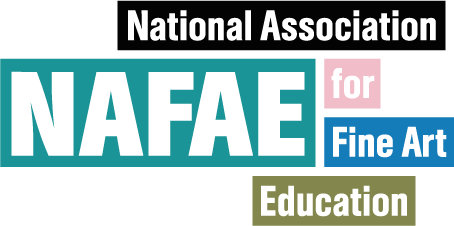Abstract
In 2021 the Turner prize jury selected a shortlist consisting entirely of art collectives who work within the broad remit of socially engaged practice. This moment reflected the current zeitgeist where art that is embedded within communities or precipitates social change has wrestled the agenda away from gallery-based practices.
In Fine Art education this zeitgeist is visible within the student community actively embracing socially engaged, collaborative and collective working, and by an increased desire within students’ graduate strategies to undertake roles that work towards social value.
At UWE, our Fine Art graduates increasingly enter careers in a broad range of fields that create social value, as much as they become practicing artists or work within the cultural sector. From community workers to therapists, teachers to social entrepreneurs, environmental activists to charity staff, our students are seeking to utilise the analytical, critical and creative skills they are taught as artists on our programme for societal benefit in the third sector and beyond.
So how do art institutions nurture and empower our students to be social changemakers?
In order to help students achieve this we need to go beyond reflecting current developments in practice within studio teaching to embrace the role professional practice pedagogy and integrated careers service support has in equipping students with the tools to understand how they can realise their ambitions in the community beyond the university.
The Fine Arts programme at UWE actively uses this integrated model to support student social engagement. Our Professional practice modules have been designed to run as sequential developmental stages across the 3 levels to aid understanding, experience and reflection. Students are encouraged to consider the wide reaching definitions of what ‘professional practice’ can be and how transferable their skills are when doing a Fine Art degree. When completing their work experience component at level 2, for example, students can either work for an organisation or have the opportunity to create their own enterprise, business or art event. This is supported by a pedagogical approach recognising that many students do not wish to continue to practice art after graduation. This equips students to make a creative contribution to society within a broad range of roles.
Embedding Careers Service delivery within our Professional Practice modules enables our students to better understand how their skills can create social value. As well as providing live employment and volunteering opportunities, the university have a number of financial schemes – from community grants to enterprise scholarships to paid undergraduate and graduate internships - that facilitate students to create bridges towards developing creative social practice and entrepreneurship beyond their academic study.
Our presentation will draw on statistical data and student case studies to demonstrate how the integration of professional practice pedagogy that recognises the diversity of Fine Art graduate destinations and integrating proactive Careers Service support structures can assist Fine Art students to become creative agents for social value across a broad spectrum of careers.
Bios
Sophie Hayes is an artist and is a Senior Lecturer in Fine Art at UWE, Bristol, where her role includes Admissions Tutor for Fine Arts. Using photography and moving image, her work often exists within the guise of the document, but explores how and where a location or idea slips beyond the seemingly familiar. She is a member of UWE's Document & Location Research Group.
http://www.documentandlocation.org
Simon Morrissey is associate professor at UWE, Bristol. He is a curator and the Director of Foreground. His practice responds to people and place as the generators for curatorial and social projects. He is also the founder & convenor of the Document and Location research group at UWE, which investigates place and its interpretation through different disciplines.

